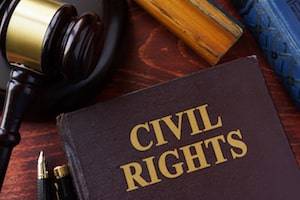
The use of physical force to control other people is part of the daily life of New York City police and corrections officers. They must break up fights, restrain arrestees, and handle people who are drunk, drugged, or violently resistant. In some cases, an officer must use extreme force, and the person being restrained may suffer serious injury. Such cases may result in a civil lawsuit arising from the claim that the police officer committed a federal civil rights violation by using excessive force.
However, the mere fact that an injury occurred is not, in itself, proof that an officer used excessive force. The difference between reasonable force and excessive force depends on the totality of the circumstances at the scene.
Consequences for Federal Civil Rights Violations
When a law enforcement or corrections officer is accused of using excessive force, the officer can face multiple consequences including:
- Disciplinary charges from their employer.
- Federal criminal charges for “deprivation of civil rights under color of law” (18 USC § 242). If convicted, the possible penalties include fines and federal prison time.
- A federal civil lawsuit filed against the officer by an individual plaintiff who claims a violation of their constitutional rights and demands financial compensation as provided under federal law (42 USC § 1983), commonly known as a Section 1983 claim.
For example, a former Suffolk County Police Chief was sentenced to almost four years in federal prison plus three years on supervised release for violating the civil rights of a 26-year-old man in police custody and then conspiring with other officials to conceal the misconduct. The young man had been arrested for stealing a duffel bag from the police chief’s vehicle. At the police station, the thief was handcuffed, and the handcuffs were chained to the floor. The police chief, enraged by the theft, repeatedly hit and threatened the young thief. The police chief then conspired with other officials to cover up the assault.
Section 1983 Claims Against Local Governments and Police Departments
A Section 1983 claim can also be filed against a local government body, such as the City of New York, the New York City Police Department, or the New York City Department of Corrections. In order for a claim against a government body to be successful, the complainant must show that the government body itself is at fault for maintaining a policy or tolerating a common practice that results in civil rights violations. One example would be if the government body showed “deliberate indifference” in failing to properly train or supervise its employees in the use of physical restraint devices and techniques.
In the case mentioned above, because of the systematic cover-up led by the department chief, the young thief sued Suffolk County for civil rights violation and received a settlement of $1.5 million.
Manhattan Civil Rights Violation Lawyer
If your civil rights have been violated, you should work with an aggressive New York City civil litigation attorney to learn about your options for pursuing a claim. Call JOEY JACKSON LAW, PLLC at 833-JOEYJACKSON or 833-563-9522.
Sources:
https://www.law.cornell.edu/uscode/text/42/1983
https://www.newsday.com/long-island/suffolk/james-burke-cover-up-arrest-1.23925008
https://www.prisonlegalnews.org/news/2018/jul/25/prison-excessive-force-cases-primer/
